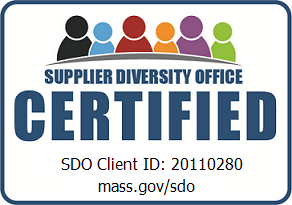We’ve all been there: It’s 4 p.m. on a Friday, and you are about to sign off for the weekend when the unexpected happens. For those in leadership roles, these unexpected situations can majorly impact your organization.
Maybe many of your customers were the subject of a data breach. Maybe a board member was overheard making a comment that does not align with your organization’s values. Or maybe your company is being asked to respond to social unrest in your community.
Regardless of your crisis, being able to communicate and manage the situation effectively is imperative to mitigating any potential reputational harm. For many, the term “crisis” itself causes an internal panic. So, let’s break it down.
What Is Crisis Management?
It’s often said that the best defense is a good offense. While this adage is best known in sports, a proactive and strategic mindset is often the best way to approach crisis management. Crisis management refers to the process by which organizations prepare for and respond to events that may cause harm to their reputation, stakeholders, or the public. Effective crisis management requires timely and factual responses, to minimize the negative impacts of the situation.
The Importance of Crisis Management
Given the 24/7 news cycle and the viral aspect of social media, how and when you speak on issues is incredibly important. In today’s world, it’s not a matter of if a situation will occur, but when. All too often, organizations, companies, or brands mishandle a delicate situation, creating more opportunities for risk and negative exposure.
Types of Crisis
Although it may be impossible to predict every type of sensitive situation, having a high-level understanding of major crises is important to manage situations and communications with your stakeholders effectively.

Natural Disaster
A natural crisis can be one of the most difficult to plan for due to its unpredictability. However, as we continue to experience record-breaking environmental events, natural disasters and weather-related incidents such as floods, droughts, and wildfires will impact organizations. This includes physical damage to facilities, disruptions to the supply chain, and potential injuries/deaths. Because the safety and well-being of your employees are and always will be your top priority, developing contingency plans for numerous scenarios is imperative to ensuring the safety of people and property and limited disruption to business operations.
Technological Crisis
Technology crises – data breaches, security incidents, ransomware, and phishing scams – can potentially expose confidential information that disrupts operations and severely impacts public trust and confidence. Regardless of your industry, a technology incident adversely impacts your ability to serve your stakeholders best. And if it’s not managed correctly, it can lead to severe short- and long-term implications on safety, security, stability, growth prospects, and reputation.
Personnel Crisis
Personnel matters are often difficult to manage, as companies are typically limited in what can be discussed publicly. While it’s always important to consider the possibility of litigation with any crisis, issues related to discrimination, harassment, and termination should always be handled with care. It’s also important to remember an employee or an acquaintance may leak that information and impact public perception of the issue. In such situations, social media poses a unique reputational threat, providing an open forum for speculation and opinion.
Crisis by Affiliation
Despite careful internal planning, an organization can become embroiled in a crisis due to an affiliation with a client, partner, community member, or other entity. This includes a customer’s business practices, monetary support for certain causes or individuals, and public comments made by business partners or board members. Situations like these could call into question what the organization stands for and its position on the matter at hand; they can also call into question the organization’s integrity and with whom it chose to affiliate. It’s important to monitor the behaviors of your affiliates and, when necessary, create appropriate distance from matters that could negatively impact the brand, employees, or standing in the community.
Looking For Help With A Crisis? The Castle Group’s Crisis Management Team Has You Covered
While there is never a one-size-fits-all approach to managing a crisis, our team’s ability to work quickly and effectively across all industries – and with clients of all sizes – allows us to deliver timely results on high-visibility issues.





















